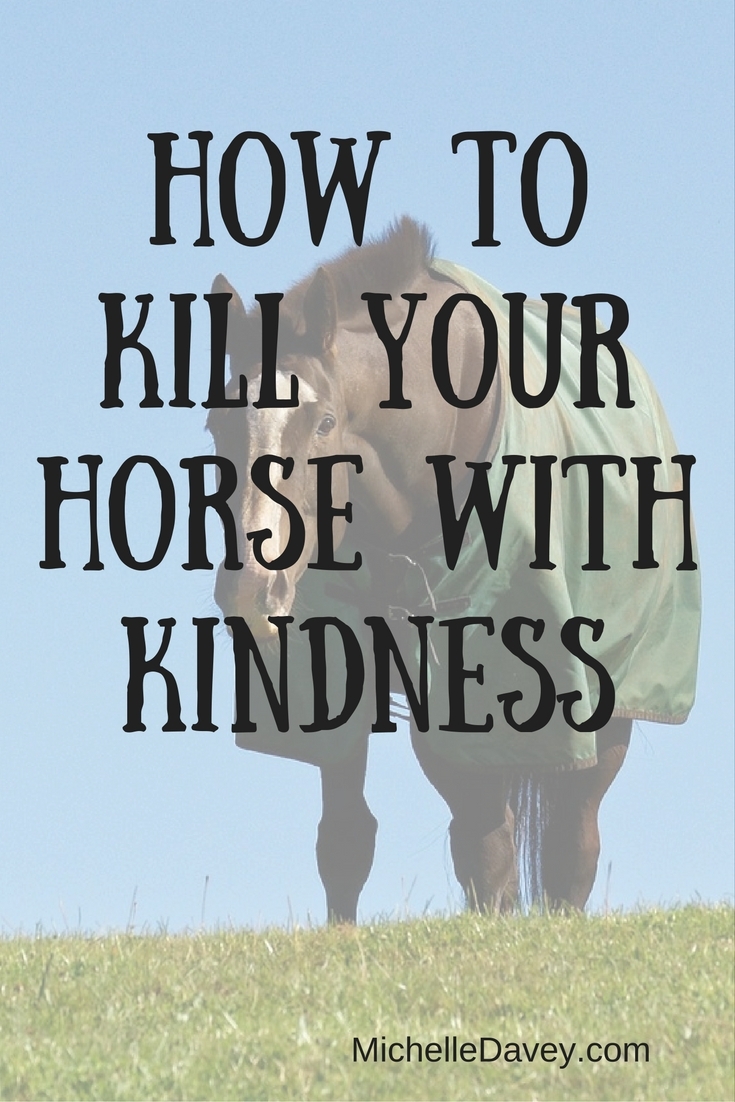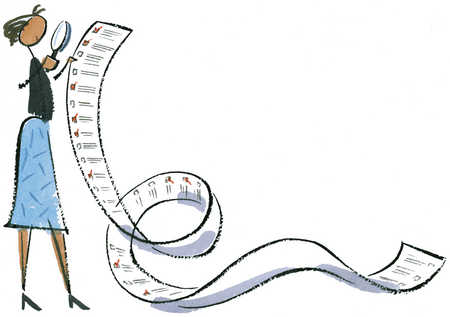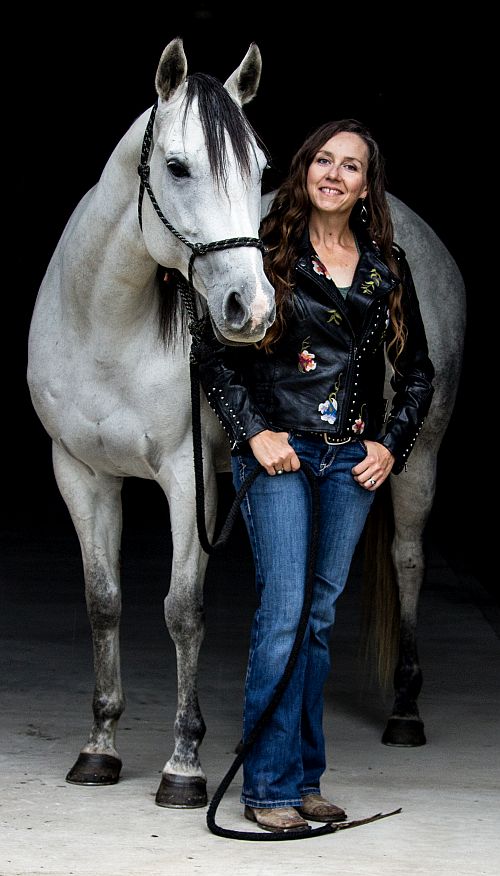 We all want the best for our horses. We want them happy, healthy and sound. Forever.
We all want the best for our horses. We want them happy, healthy and sound. Forever.
Fortunately and unfortunately, there are thousands of product choices out there we can use to supplement our horse’s diet. You might be wondering why I say that is unfortunate. I say that, because a lot of it is unnecessary garbage that shouldn’t be fed to anything, nevermind your horse that you want happy, healthy and sound.
There are no regulations keeping someone from putting a bunch of ingredients together, making up a benefit for the feed, slapping a label on it and calling a day. How do you know that your horse needs all those ingredients in his body, to have the said benefit? You don’t. You’re hoping and speculating.
What happens to all the ingredients your horse is ingesting that he doesn’t need? He poops them out you say? Why yes he does, but not before attempting to metabolize it all through his digestive and excretory systems. Feeding unnecessary ingredients is one way to tax your horse’s stomach, hindgut, kidney’s, liver, pancreas etc etc. They’re all working hard to clear that garbage out instead of building muscle, burning fat and getting their “bloom” on.
“But I’ve been feeding these 10 supplements and my horse looks amazing, he’s just not firing.” Or – “he was working so good and now he’s not.” “Look at these before and after pictures, he looks so much better!” What happened? Well, he could have very well been deficient in one or two nutrients that your feed or supplement helped fill. Once his nutritional levels are balanced, what happens to all the excess? He has to digest it and poop it out. What if some of the nutrients he’s getting too much of, he can’t metabolize quick enough and they back up in the system? He starts to get poisoned (think Selenium). Some of the nutrients we’re feeding our horses in excess are actually poisonous if they have too much in their system. Also, how do we know your horse isn’t more sensitive than the horse one stall over to the same thing. You don’t. What may be a cure to one, may “kill” another. You really can get too much of a good thing.
Over supplementing can be the slow demise of your horse. You have the best of intentions, but there are no horses out there that should have a list of supplements as long as my arm.
In the sessions I do, I work at getting to the root of the problem. In most cases, the horse is actually getting enough of said nutrient in their diet, but for reasons we determine, they aren’t using what they are eating. By balancing their systems and helping organs get “happy” we are able to solve deficiencies and imbalances through little and short term supplementation.
 Many supplement companies sell a pre-blended product with a purpose, but you have no way of knowing if it’s going to help or hinder your horse without trying it. There may only be 2 or 3 ingredients in the product that are actually benefiting your horse, as he may have met his needs for the other nutrients through his regular diet. The rest of them are excreted at the expense of his digestive system and the bodies energy reserves.
Many supplement companies sell a pre-blended product with a purpose, but you have no way of knowing if it’s going to help or hinder your horse without trying it. There may only be 2 or 3 ingredients in the product that are actually benefiting your horse, as he may have met his needs for the other nutrients through his regular diet. The rest of them are excreted at the expense of his digestive system and the bodies energy reserves.
How do you feel when you eat too much? No matter whether it’s healthy food, if you eat too much of a good thing you feel sluggish. You have a backup of metabolic waste slowing you down. This is not a feeling we want in our performance horses. If you have a horse with undesirable behavior (whether it be slow, erratic, cranky) , look at his diet. Are you feeding something that doesn’t sit well with his system? Has he stopped eating or backed off what you’re feeding him? Look into why he’s unable to properly process what you are feeding him.
There are many companies that will do an analysis of your hay so you know what nutrients you are actually feeding. You can even check the nutritional levels of your grass by sending in clippings. There are companies that will do hair analysis of your horse’s hair to see where your horse may be lacking, by checking the nutrients they are storing in their hair. There are intuitive people that can energetically check their levels. You can also check your horse’s nutritional levels via blood test. Unfortunately this, in my opinion, isn’t overly reliable as from what I’ve seen being one of those “intuitive types” is that the horse’s blood needs to be at critical levels (in excess or deficiency) before it would show up in the blood work as a concern. I think you’ve got big problems when they do show up as a concern. Also, many micronutrients are not considered, as well as several are stored in organs so their levels showing in blood aren’t really that reliable.
No matter what your beliefs on the best way to check these levels for your horse, you have options.
Once you know where your horse is lacking you can decide the best prepared feed and/or supplement to meet your deficiencies or go ahead and add a single nutrient as a supplement (rather than a mile long list of nutrients and additives)
You can have supplements custom made for your horse and quite often at a lower cost in the long run, by feeding less and feeding the right things. Often times herbs, that are very high in certain nutrients can be fed to balance the needs of your horse very quickly. What I prefer to do with the energy work I do, is to find out what part of the horse isn’t functioning right and clear the underlying causes of that. Once things are all in order and working properly inside, the body can digest and use the nutrients it is already receiving at optimum levels.
Through the work that I have done, if you aren’t going to go to the work of finding out what your horse is, and isn’t using, your best bet is to feed a good probiotic. Quite often from what I see, the root of many lamenesses is trouble in the hind gut. When the hind gut isn’t “happy” you end up with a backup of metabolic waste. That waste ends up going into the body, into the blood and creating aches and pains through inflammation. Think of those times when you’ve overindulged. In food, sugar, snacks, alcohol, whatever. You feel a few years older the next day and your joints hurt a bit. You’ve got a backup in your metabolic system from too much of “a good thing”. All the excess that your body wasn’t able to clear out goes out into your body while it catches up. A probiotic will help with the digestion and breakdown of what you are feeding. It will render the nutrients more usable by breaking them down. It’s good bacteria we are feeding. Antibiotics, stress, and fever are ways that the good bacteria population your horse has naturally, can be compromised. There aren’t very many competition horses that don’t feel a bit of stress. For this reason, I feel it’s good insurance to feed a probiotic to a horse that has had antibiotics, been sick or is being hauled. That being said, this something I check for individually on my client’s horses and my own. My point being is if you are going to take a shot in that dark feeding something to improve your horse’s health, I’d start with a probiotic.
Oversupplementing is just one way to “kill your horse with kindness”. I will have to save the over use of, blanketing, magnets, ceramic products, wrapping as well as over exercising, under exercising, overheating, and undercooling for another time!
My hope is that next time you’re reading the benefits of a product, you also read the label. When you’re reading the label, question how much of this does my horse ACTUALLY need. Listen to what your gut tells you. If it doesn’t feel good to you, it’s not likely going to feel good to your horses gut either.
Disclaimer: I am not a vet or medical professional of any type. I am an intuitive horse person who loves a shiny healthy, happy horse. These are simply my opinions and “food for thought”. Use your own gut feeling on this, and like anything you read, take it into consideration, don’t consider it the gospel. Make your own decisions. These are my opinions based on the education and experiences I have had and seen in my client’s horses.

